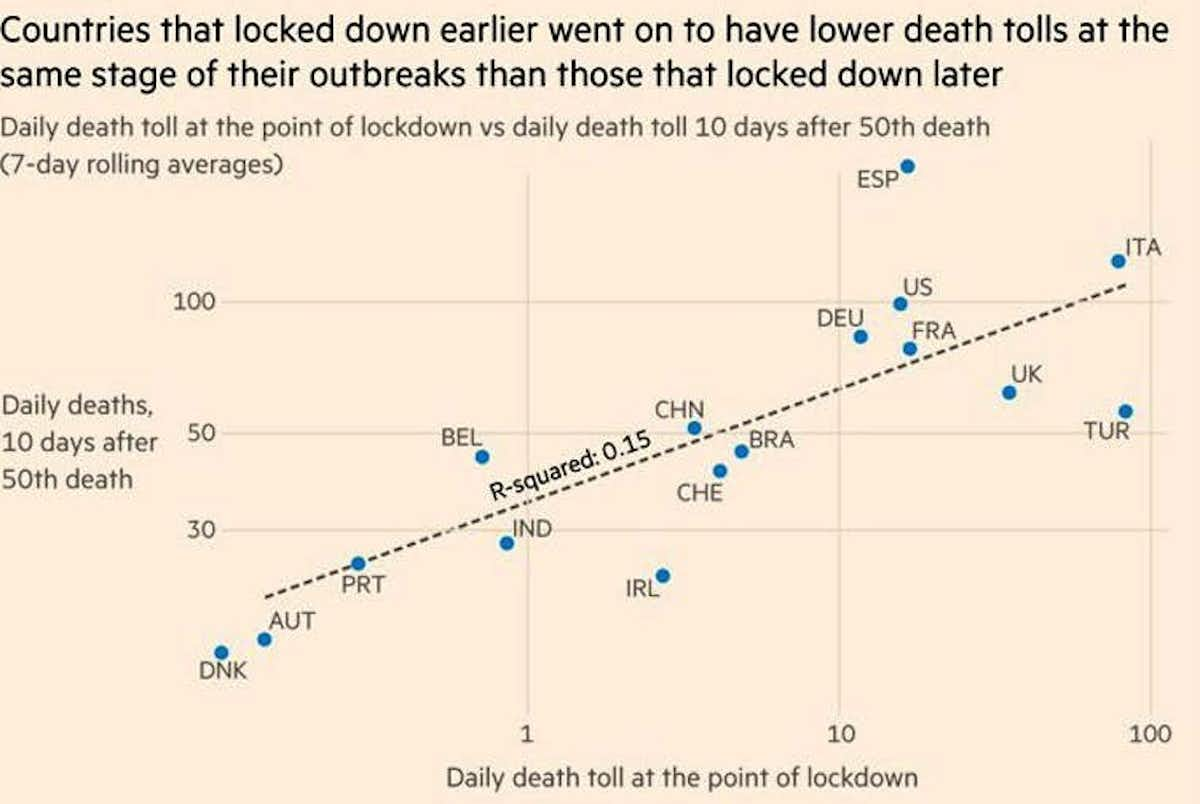To: Cronos
There is no evidence the lockdown did any of that. No health department t that I have seen did anything to trace transmission except maybe to look for the first case. There was no reduction or elimination of contact when you leave abortion clinics pot shops and the NY subways open. Reduction of viral load makes no sense. If you are exposed you are exposed.
On the other had there are very real measurable harms. Start with the unemployment rate and look at economic production. Then look at the suicide rate. It will take a bit longer fo measure the morbidity and mortality from those who became more ill or died because of inaccessible medical cards or fear of going to the ER/hospital.
Even if you buy the curve was “flattened” by the lockdown no one thinks that the lockdown ultimately prevents cases or deaths. If you think the lockdown worked then the rest of the population that didn’t get it from because of the lockdown will get it when the lockdown is lifted. We can’t stay locked down forever despite what liberals and fearpers wish.
91 posted on
05/13/2020 10:29:28 PM PDT by
Mom MD
To: Mom MD
Thank you for the response.
For the evidence, we need to look at countries that had the virus before it came state-side. In Italy for instance, Bergamo was badly affected as it locked down nearly 2 weeks later than a neighbouring town in Lombardy.
Similarly, the lockdown in South Korea and Taiwan have resulted in far, far fewer deaths per capita.
Relating to the meaasurable harms - that is true in the USA. For some reason the lockdowns in S Korea and Taiwan didn’t affect people that hard.
I don’t “buy” that the lockdown rate was flattened - I compare it say Sweden to Denmark+Norway.
92 posted on
05/13/2020 10:41:00 PM PDT by
Cronos
(Re-elect President Trump 2020!)
To: Mom MD

If you look at the empirical evidence from the 1918-1920 Spanish flu the findings demonstrate a strong association between early, sustained, and layered application of nonpharmaceutical interventions and mitigating the consequences of the 1918-19 influenza pandemic in the United States. This separate study shows the same - lockdowns emphatically and empirically work
cities that adopted the most aggressive social distancing measures had the highest economic growth after the restrictions were lifted.
Moreover, cities that implemented NPIs 10 days earlier than other cities increased their manufacturing employment by 5% more than those that imposed restrictions later. The difference lasted through to 1923.
Overall they found an additional 50 days of social-distancing was associated with a 6.5% percent increase in manufacturing employment.
93 posted on
05/13/2020 11:58:46 PM PDT by
Cronos
(Re-elect President Trump 2020!)
To: Mom MD
I'll also give examples from the worst hit region - the 27 EU countries + the UK
Countries that went into lockdown early - Austria, Poland, Czechia, Slovakia, Romania, Greece, Portugal, Germany were hit far less hard than those who went into lockdown LATE like Italy, Spain, France, the UK and Sweden.
94 posted on
05/14/2020 12:20:30 AM PDT by
Cronos
(Re-elect President Trump 2020!)
FreeRepublic.com is powered by software copyright 2000-2008 John Robinson
